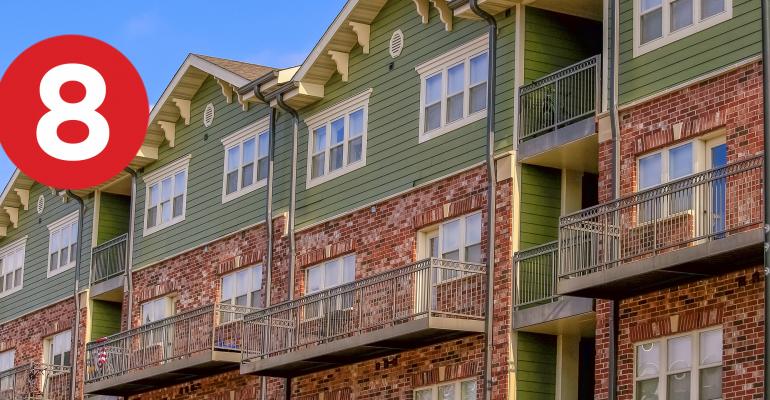- Demand is increasing for commercial real estate services, William Blair says “Almost 90% of respondents said demand improved from the prior quarter, up from 56% in Q4 and 52% in Q3. Some 47% of respondents said demand improved significantly (up 5% or more) vs. 29% in Q4 and 30% in Q3.” (Seeking Alpha)
- Big Uptick of New Businesses May Not Pay Off for CRE “Some of those businesses will likely need commercial real estate. However, notice the difference between high-propensity filings—those for various reasons deemed likely to become businesses with a payroll—and low-propensity, which are expected to change the number of jobs. Many, if not most, of the latter are probably one-person shops that will work out of their homes or, perhaps, flexible office space.” (GlobeSt.com)
- Why Ray McGuire, Real Estate’s Favored NYC Mayoral Candidate, Is Struggling “The campaign spigot began to flow, too, allowing the McGuire campaign to opt out of the city’s generous public matching funds program. He hauled in $2.3 million by early December, and more than tripled that amount with $7.3 million by April, with another $4 million plowing into his super PAC…. And, yet McGuire trails a lead pack of Democratic mayoral hopefuls that has bunched together through six months of campaigning ahead of the party’s June 22 primary.” (Commercial Observer)
- Insurance Costs Threaten Florida Real-Estate Boom “Florida is the most expensive state in the U.S. for home insurance. Residents are projected to pay on average $2,380 in premiums this year, a 21% increase over the $1,960 paid in 2018, according to estimates by trade group Insurance Information Institute. By contrast, the average American homeowner is expected to pay $1,297 this year, up 4% from $1,249 in 2018.” (The Wall Street Journal)
- The Good News About the Insane Real Estate Market “The causes of this crisis are many (pent-up demand, the soaring stock markets, low interest rates), but one stands out: Not enough homes! There are more real estate agents than there are homes for sale right now, and it’s not particularly close. New York City, for example, built fewer new homes in the boom years of the 2010s than during the depopulating 1970s, and has built fewer new homes in the past half-century than it did in the 1920s alone.” (Slate)
- Winning a Housing Lottery and Figuring Out How to Get Out of a Lease “After touring the new building and submitting all the necessary documentation, she reached out to her landlord, asking if she could terminate her lease. She assumed there would be a financial penalty, which she was prepared to pay. But her landlord told her that the lease couldn’t be terminated and that her only option was to sublet the studio.” (The New York Times)
- Red hot real estate markets have turned surprising profits for unintentional property flippers “The scenario isn’t an isolated case. It is playing out in several U.S. real estate markets as the rising value of stocks and other assets has helped boost the spending power of the wealthy. With many of these buyers looking to live in a limited number of markets, the availability of luxury properties can be scarce.” (CNBC)
- Real estate data firm Cherre raises $50 million as everyone from landlords to investors is desperate to quantify post-pandemic building needs “Cherre — pronounced "cherry" and founded in New York in 2016 — has created an infrastructure tool that connects and combines data sets from different providers. Other real estate data companies, meanwhile, try to create their own databases.”(Business Insider)
0 comments
Hide comments





